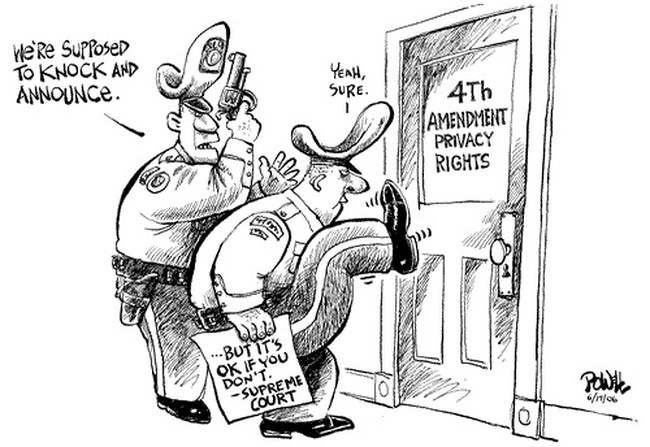Mapp v. Ohio

Case Overview
The home of Dollree Mapp, in Ohio was forcefully entered by the police. The officers who intruded into her house believed that a suspected bomber was inside. In her house the officers found pornographic books. Mapps was later prosecuted under an Ohio statute for knowing possession of lewd and lascivious material. She was convicted even though the prosecution was unable to produce a valid warrant. Mapp argued that her fourth amendment rights had been violated, she would eventually take her appeal to the Supreme Court. At this time, unlawfully seized evidence was banned at a federal level, but not at a state level.
Constitutional Question
The Supreme court decided to hear the court because it raised the question, were the confiscated materials protected from seizure by the Fourth Amendment? More specifically it also led to the discussion of whether evidence obtained unlawfully could be upheld in a state court.

Court Decision
The U.S court ruled in a 5-3 vote in favor of Mapp. The Supreme court said that evidence seized unlawfully (without a search warrant) could not be used to prosecute criminals in state courts. Unlawfully obtained evidence was already in place in federal courts, so the majority agreed that the exclusionary rule for unlawfully seized evidence applied to state courts as well.
Significance
Mapp v. Ohio strengthened the Fourth Amendment to protect against unreasonable searches and seizures. Making it illegal to obtain evidence in an unlawful manner, meaning without a warrant. This decision would expand the rights of criminal defendants.
This case was fairly settled, because it would vote in favor of Mapp. In doing so it not only greatly helped the rights of criminal defendants but also strengthened the fourth amendment.